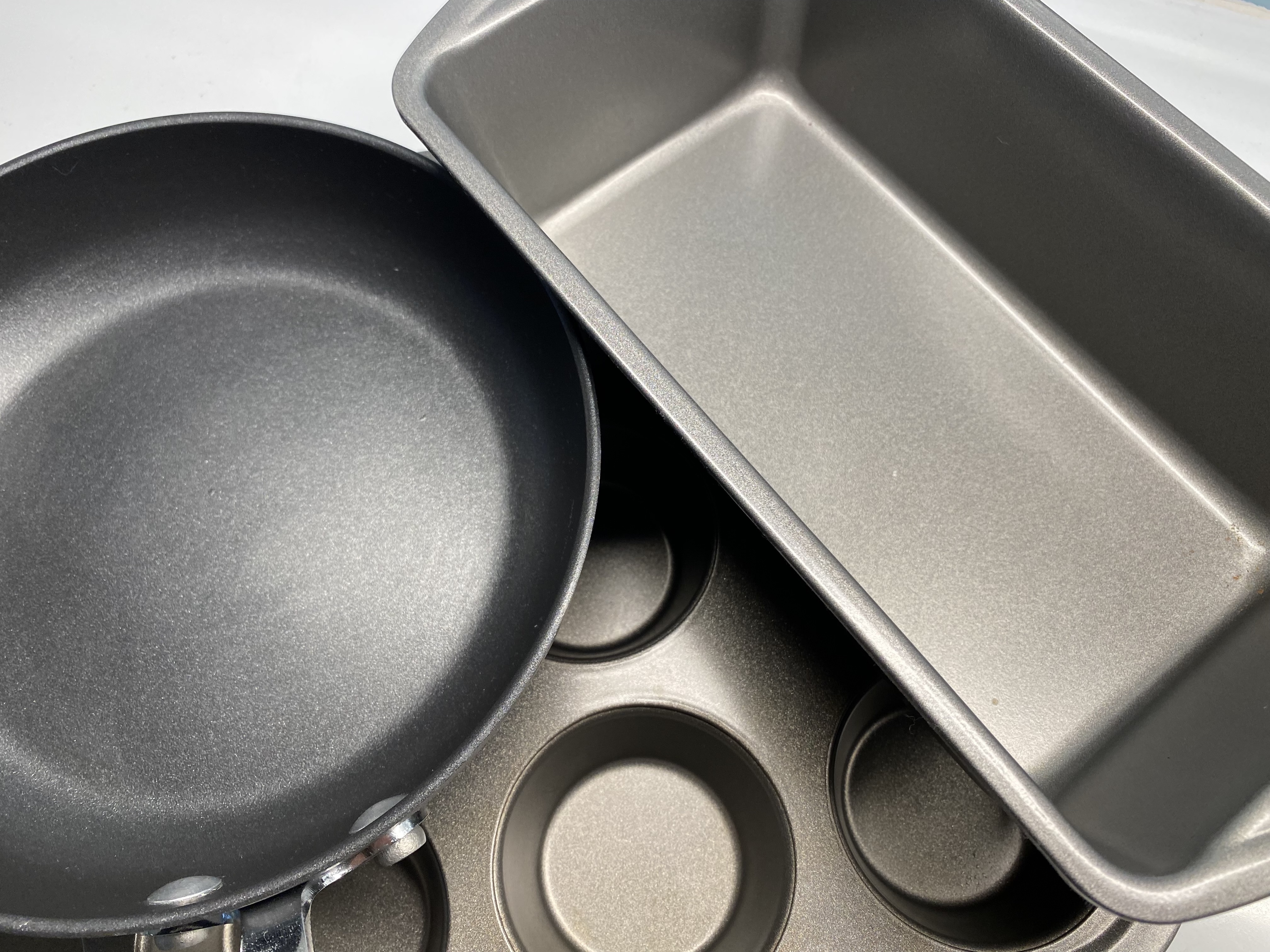Over the past couple of decades – I’m dating myself – or so I’ve read about the health risks of Teflon (a.k.a. PFOA, PFOS, PFAS, PTFE, and Forever Chemicals). Like so many things, I took note but was not seriously concerned. That is of course until recently when it started showing up in the news with more frequency. Studies show that the chemical is linked to cancer, developmental issues in babies and kids, immune dysfunction, and organ damage, to name a few.
When I started having kids about 9 years ago, I became more sensitive to health-related issues because I worry for them. I now have tremendous mom guilt for not having been more conscious about my own health and consumption habits. This particular chemical is ubiquitous, accumulates in our bodies, and is then passed on to our children in utero and through breast milk. Through this journey of information gathering, I came to a conclusion: synthetic chemicals should be avoided as best we can. It’s not all avoidable, but if we try where we can, it’s far better than not trying at all.
With that in mind, I grabbed a large Costco box from the garage from a recent shipment and went to work. I loaded it up with all the Teflon coated pots, pans, cookie sheets, bread and cupcake pans I could find in our cupboards to recycle. My husband and I had a heated discussion about it. We both recently purchased or replaced some of these items. Fortunately, I have more pull as cooking is my domain. I now cook primarily with stainless steel, cast iron, and ceramic cookware. I wrote an article recently about Caraway as a clean, nonstick cookware option. If we prepare our own food, we can try to avoid these chemicals in the process.
When my family and I are out and we don’t have another option but to grab something quick somewhere: a sandwich, burger, fries, or what have you. The wrappers used to wrap and transport the food, and the gloves restaurant workers use to handle the food sometimes leach chemicals. As much as I try to avoid fast food, and for the most part, we do; we still get takeout somewhat regularly. Unless you eliminate eating out, there really isn’t a way to control whether you’re consuming forever chemicals. Fortunately, cooking at home is one of the places we can.
Here are some articles on the topic: The Hill, Chem Trust, The Guardian. You can also do a search on Google for more.
